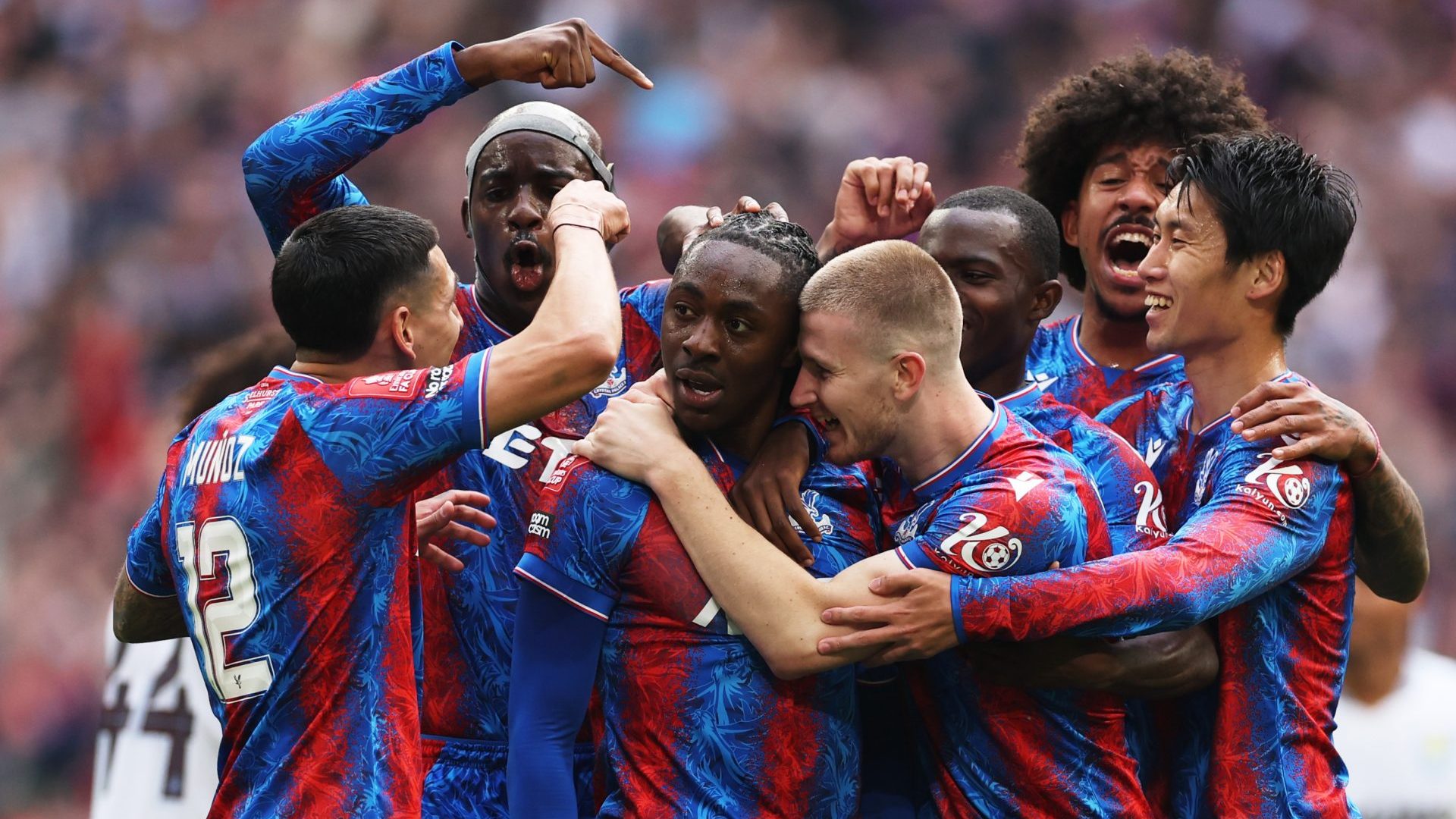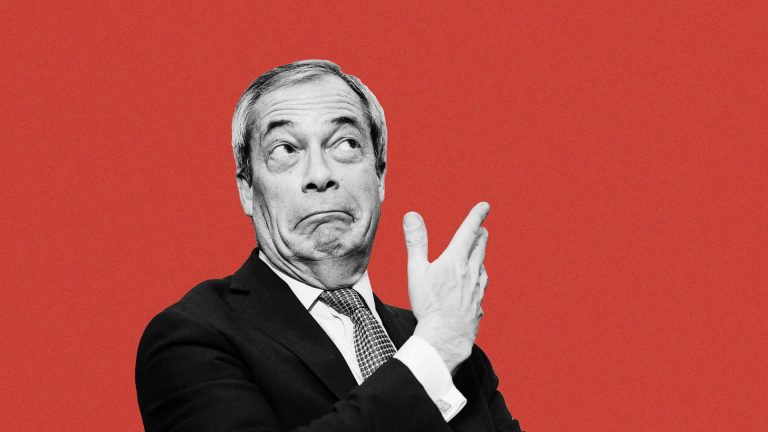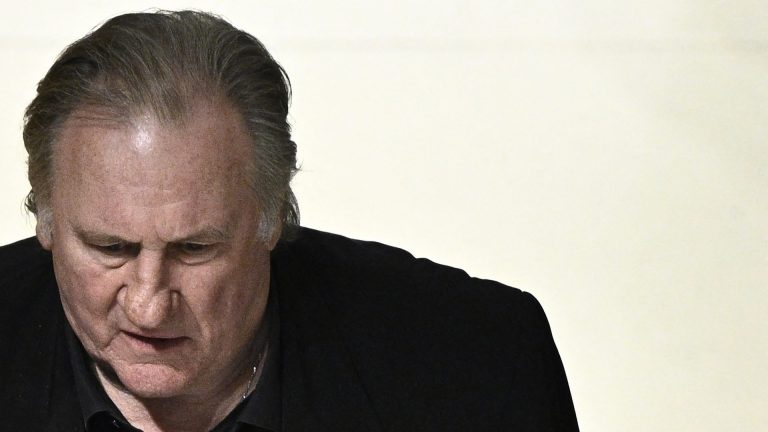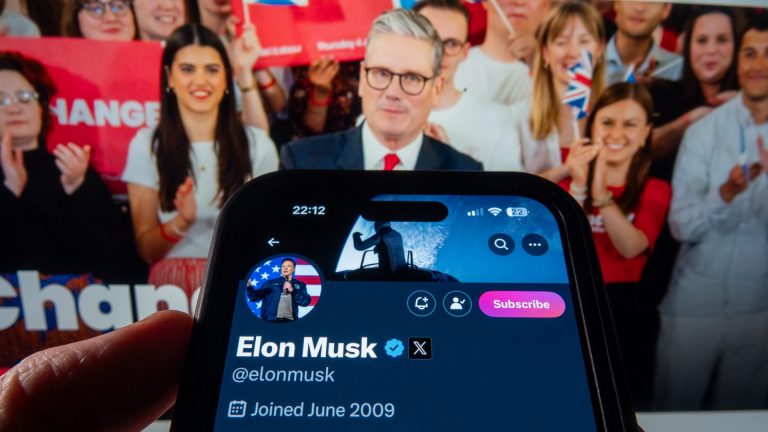Suddenly we’re all Canadians. And Greenlanders. And it’s not just their essential rightness that appeals to us: it’s the fact that they’re underdogs. They have both been picked on by the most powerful nation on earth, and they both told its leader to get stuffed. Huzzah!
That gratifies us on a profound level. The underdog is a universal human archetype: perhaps the archetype. It’s the way we see ourselves and the way we understand the universe.
Donald Trump wants Canada and Greenland to become American properties: 51st and maybe 52nd states. But the people of these countries told him to piss off. And we like that.
In the FA Cup final, Crystal Palace, who once finished third in the top flight and once won the Cup back in 1991, take on Manchester City, who have seven FA Cups and ten league titles, six of them in the last seven years. Added spice comes from the fact that City face 115 charges of breaching rules about finance: offences Palace aren’t even rich enough to commit.
The FA Cup thrives precisely because it brings such anomalies and inequalities in every round. Part of football’s universal popularity is the way it provides more underdog victories than any other sport in the calendar.
When Henry V was about to lead England into battle against the French at Agincourt, he was hopelessly outnumbered. And in Shakespeare’s play, he says – says of his own side: “God’s will, I pray thee, wish not one man more.” He saw underdoggery as a positive advantage.
After the battle, Henry hears that 10,000 Frenchmen are dead, and among them, 126 princes and nobles. And of the English, the herald gives four names of the eminent fallen, including Davy Gam, esquire, and “of all other men but five and twenty”. This was the triumph of the few against the many: “We happy few, we band of brothers”.
This line was echoed in the speech of Winston Churchill about the Battle of Britain: “Never in the field of human conflict was so much owed by so many to so few”. The great battle in the sky has been so deeply mythologised that the historical events are now almost irrelevant. The Germans expected victory in a matter of days and had already made plans for the victory parade when hostilities began. But the British had an edge: early warning by radar.
We don’t celebrate the radar operators: we prefer the heroes in Spitfires (the heroes in Hurricanes have also been forgotten). We also forget that 20 per cent of the Battle of Britain pilots weren’t actually British: Poles, New Zealanders, Canadians, Czechs and others.
Never mind facts. The British traditionally see themselves as the underdog nation: outnumbered but still the mightiest in Europe if not the world. Not only an underdog but Best in Show.
The Spanish Armada was launched in 1588 to invade Britain. It was thrown into confusion by faster and more manoeuvrable British ships. The Spanish then parked in a harbour and made themselves vulnerable to English fireships. After that, they were pursued into the North Sea and beyond.
We choose not to remember the English Armada: an attack on Spain the following year that failed. That’s mere history. The other event is mythology.
The activists of Just Stop Oil still wonder why they aren’t beloved like the Greenpeace activists of the 1980s and ‘90s. It’s simple: the Greenpeace people in their inflatable boats presented themselves as heroic underdogs. They drove at huge ships dumping nuclear waste into the sea. They drove between whales and whaling ships. Film footage tells the classic story all over again: the noble underdog takes on the mighty because the underdog knows he is right.
Blocking roads to stop you and me getting home for supper and chucking soup at our favourite paintings is not the same thing at all. These acts missed the grandeur and the meaning of the great archetypal underdog. All Just Stop Oil did was piss people off: even those of us on the same side. Greenpeace fired the imagination of the world.
The underdog story is as old as humanity, and it defines humanity. I was (reluctantly) covering a boxing match when my neighbour said of another reporter: “Do you know this man? He’s so old the first fight he covered was David v Goliath.” Ed Schuyler of Associated Press answered: “Yeah – I picked Goliath, right?”
Well, most of us would. Goliath stood six cubits and span; his armour weighed 5,000 shekels of brass, his spear was as a weaver’s beam, and its head weighed 600 shekels of iron. But David, youngest son of eight, with no armour and no armament beyond his staff and his trusty sling, took on the giant. “The stone sunk into his forehead and he fell upon his face to the earth.”
Was David the first underdog in literature? Odysseus is probably a couple of centuries older. He had to deal with Poseidon the sea god, Scylla and Charybdis, the Sirens, Cyclops, his own foolish associates, a witch and a lascivious nymph. After ten years, he got home at last — and then he had to fight for what he already owned. But he still wins.
James Joyce picked up the theme in his retelling of the Odyssey in Ulysses. His own hero, Leopold Bloom, is scorned, railed at, rejected and humiliated but somehow comes through: “unconquered hero”. Ulysses isn’t just a notoriously difficult book: it is also the story of a kind man and eternal underdog.
Tom and Jerry retell the underdog story with such enthusiasm that Jerry – the mouse – becomes more persecutor than victim, elaborating his underdog victories with something not far from sadism.
The Harry Potter books form a seven-novel sequence of underdog stories. After every advance, poor Harry finds himself knocked back as soon as the next volume begins: abused by the Dursleys, bullied by Professor Snape, sneered at by Malfoy and the Dark Lord ever more eager to murder him.
It’s important that Harry has no special talents. He is not brilliant like Hermione or a nosegay of virtues like Cedric Digory. But he’s brave and loyal. Going into battle on his own against overwhelming odds is something he takes in stride every time. And we love that because it’s a bit like you and me.
Sport retells the same stories. Leicester City won the Premier League in 2016; Boris Becker won Wimbledon as a teenager in 1985; Greece won the European Football Championship in 2004; Muhammad Ali beat George Foreman in the Rumble in the Jungle in 1974; Niki Lauda won the Formula One drivers’ Championship in 1974 after being almost burned alive.
These stories delight us for two reasons, which in the end come down to the same reason. The first is that we are all underdogs. In the end, we are all of us on our own, and the rest of the world is very, very large.
We all start as small children in a huge and frightening world, we must all try and make our way as grown-ups, and even for the most privileged, that’s a terrifying prospect. Every one of us who becomes a functioning adult has won an underdog victory of sorts. Every day survived is one more unexpected triumph.
The second reason is connected to the full moon and the way it looks different below the equator. It’s all about perspective: when you look at the moon from the northern hemisphere you see a face; in the southern hemisphere you see a rabbit or a hare.
In Zambia, the hare in the moon is called Kalulu. Kalulu is also the name of the scrub hare, a real animal that runs about on the floor of the savannah by night. Many tales are told about Kalulu. He is small and the creatures he shares the bush with are huge and fierce and frightening.
But Kalulu always wins in the end. He does so because he is smart. He is the cleverest animal on the savannah and he can outwit all the others.
These stories form a long, deep and continuing tradition. They crossed the Atlantic on the slave ships, where people had a serious need for tales of a triumphant underdog, and were adapted to fit the New World. They came back to the Old World in the form of Brer Rabbit: the stories were retold by Joel Chandler Harris, his narrator a kindly old freedman called Uncle Remus.
It’s not hard to crack the code. Humanity first walked upright on the savannahs of Africa. Humans were small and feeble when compared to elephants, rhinos, crocodiles, lions, leopards and hyenas. They weren’t fast and they weren’t strong. But they were very, very clever.
Humans evolved as underdogs, and it was our condition of underdoggery that inspired our first mythologies. We are all underdogs, and we have always been underdogs and we see ourselves as underdogs to this day. And no matter what we do, we always will.










